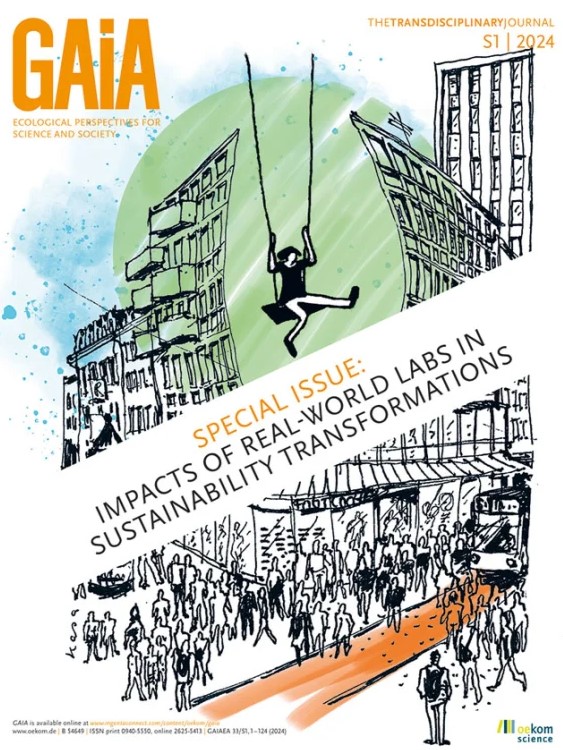Transforming toward sustainability with real-world laboratories
Real-world labs are now used in a wide range of areas – from urban development, the energy and mobility transition and biodiversity research to high-risk fields such as artificial intelligence, robotics, autonomous driving, and basic medical care.
What they all have in common is the concept of researchers working together with citizens to develop concrete transformation approaches to sustainability. A better understanding of the socially relevant effects of this practice-oriented work is also increasingly important because real-world labs are becoming more and more relevant in research, politics, and funding.
The Special Issue “Impacts of Real-world Labs in Sustainability Transformations” of the journal GAIA provides an overview of the effects, strategies, and mechanisms of real-world labs based on various case studies. It presents methodological advances and identifies potentials for promoting desirable impacts of real-world labs.
The Karlsruhe Transformation Centre for Sustainability and Cultural Change (KAT), based at ITAS, and the KIT-Center Humans and Technology (H&T) are represented in the seven-strong editorial team by Felix Wagner, Oliver Parodi, Pia Laborgne (all KAT/ITAS), and Richard Beecroft (H&T/KIT).
In addition to the editorial, the special issue contains three more articles with ITAS involvement.
The editorial team presents the “leverage points” approach as an analytical element to categorize real-world laboratories in terms of their systemic potential for change. From this perspective, the authors also examine two long-term case studies (Schäpke et al.: “Gaining deep leverage? Reflecting and shaping impacts of real-world labs through leverage points”).
Other contributors to the special issue include Daniel Lang (as co-author of Wanner et al.: “Impacts of urban real-world labs. Insights from a co-evaluation process in Wuppertal-Mirke informed by structuration theory”) and Annika Weiser (with Daniel Lang in Bernet et al.: “Impacts beyond experimentation – Conceptualising emergent impacts from long-term real-world laboratory processes”).
The special issue is based on the 2022 ITAS conference “Nachhaltig wirken – Reallabore in der Transformation” (Achieving a sustainable impact: Real-world labs in transformation) in Karlsruhe, which was organized together with the network Reallabore der Nachhaltigkeit. (03.04.2024)
Further links:
- Website of GAIA– Ecological Perspectives for Science and Society
- Conference report “Nachhaltig Wirken – Reallabore in der Transformation” in TATuP and on the KAT-Website (only in German)


